Ever wondered how these gentle giants of the rodent world manage to thrive in water? Let me break it down for you. Capybaras can hold their breath for up to five minutes underwater—a skill that’s essential for their survival. Whether they’re escaping predators or cooling off in the tropical heat, this ability is a game-changer.
Let’s dive into why capybaras are the ultimate aquatic champions and how their breath-holding abilities give them a leg up in their natural habitat.
Why Do Capybaras Hold Their Breath?
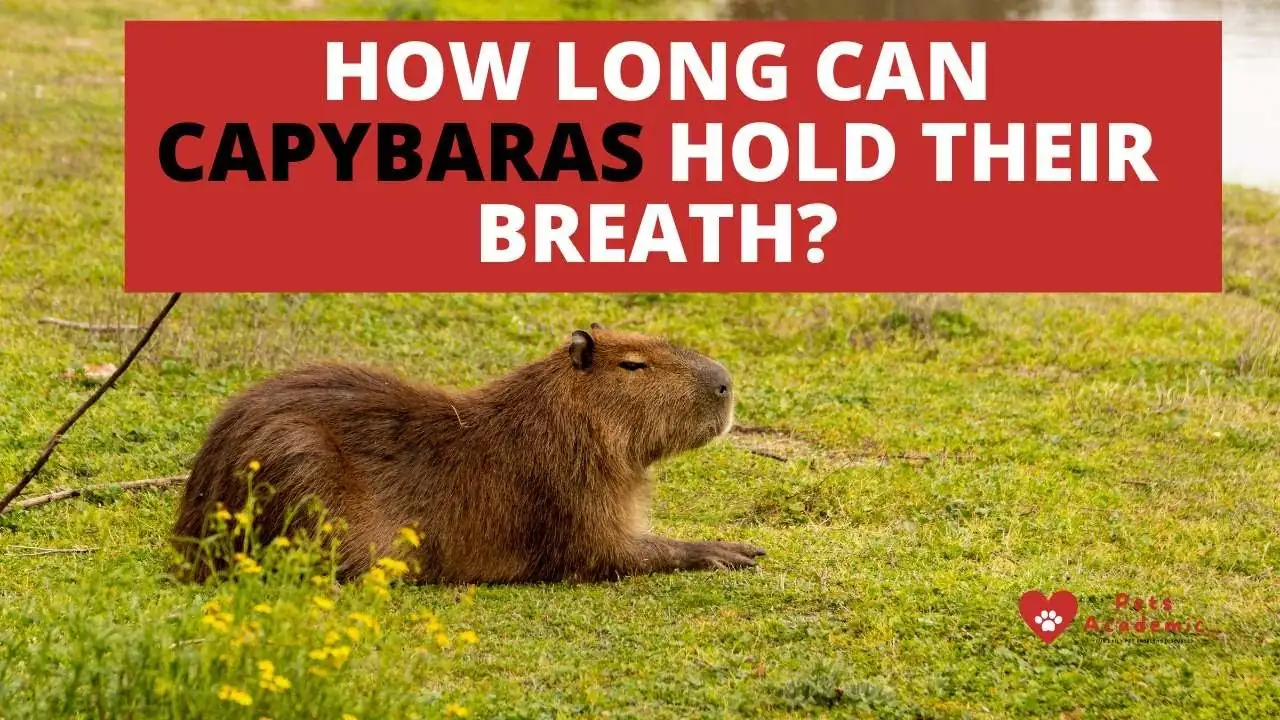
Okay, picture this: a capybara spots a predator—a jaguar, maybe an anaconda—and instead of running, it heads straight for the water. Why? Because submerging itself is the perfect way to stay out of sight. This isn’t just a random move; it’s a survival strategy honed over thousands of years.
Here’s the deal:
- Evasion: By staying underwater, capybaras can completely vanish from a predator’s view. Their brown, water-resistant fur blends seamlessly with murky water, making them nearly invisible.
- Foraging: Some of their favorite meals, like aquatic plants, are just waiting below the surface. A quick dive and voilà—lunch is served.
- Staying Cool: In the blazing heat of South America, dipping into water helps them keep their body temperature in check.
How Do Capybaras Stay Underwater So Long?
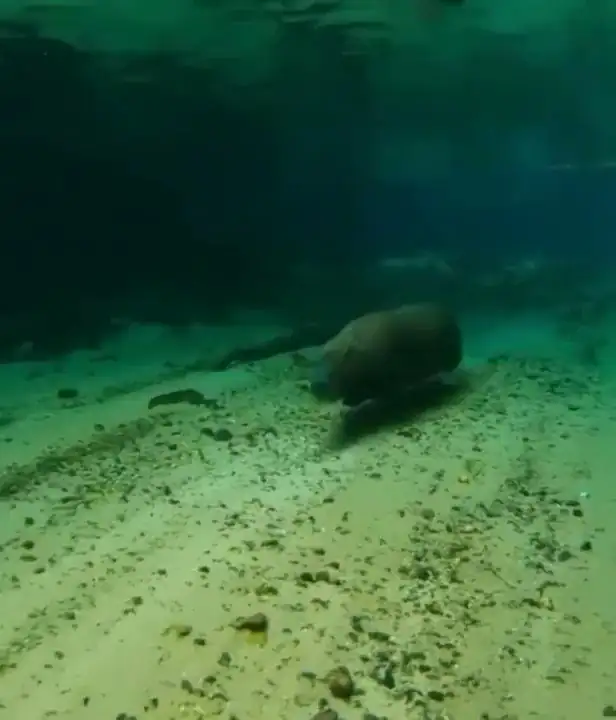
If you’re thinking, “How do they manage to hold their breath for so long?” it comes down to smart design. Capybaras are built to make the most of their semi-aquatic lifestyle.
Here’s what sets them apart:
- Streamlined Breathers: Their nostrils, eyes, and ears sit high on their heads, letting them keep most of their body submerged while still breathing and staying alert.
- Efficient Oxygen Use: Capybaras’ bodies are optimized to conserve oxygen, so when they dive, every breath lasts longer.
- Powerful Swimmers: With partially webbed feet, they glide effortlessly through water. This means less energy spent and more time submerged.
Fun fact: Capybaras can even sleep in water! They’ll keep just their noses above the surface, staying relaxed and safe.
What Affects Their Breath-Holding Time?

Now, while five minutes is the average, a few factors can shorten or lengthen how long a capybara stays underwater:
- Fitness Level: A healthy adult capybara will outlast a younger, weaker, or older one.
- Stress: When under stress (like during an intense predator chase), they might surface quicker.
- Water Temperature: In colder water, they might not linger as long because their bodies need to maintain a stable internal temperature.
How Do Capybaras Compare to Other Animals?
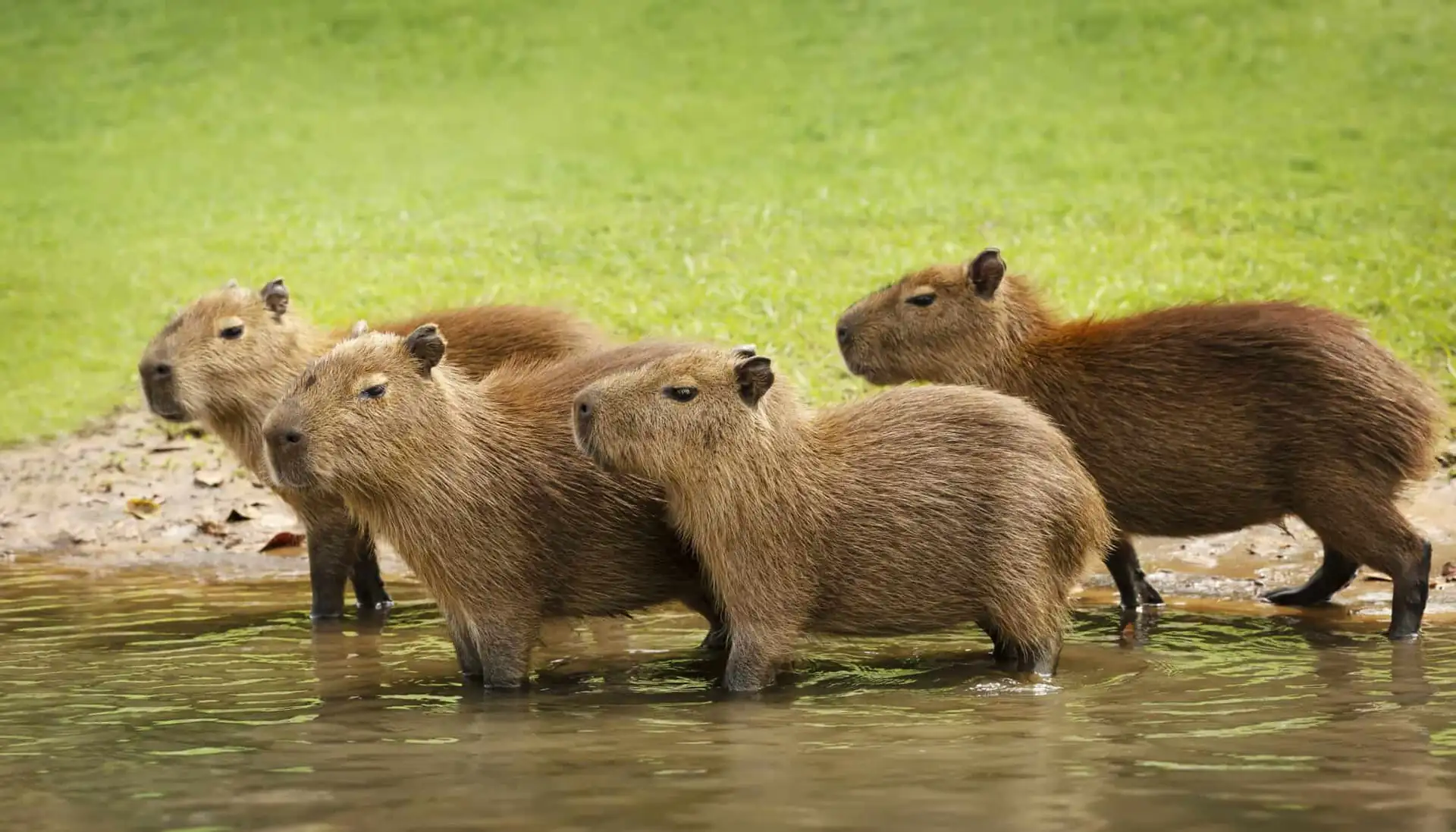
Sure, five minutes is impressive, but how does it stack up against other aquatic mammals?
- Beavers: These guys can stay underwater for a jaw-dropping 15 minutes. They’re the ultimate breath-holding champions of the rodent world.
- Otters: Depending on the species, otters clock in at about 6-8 minutes.
- Hippos: Hippos, often seen lounging in rivers, can hold their breath for around 5 minutes, putting them in the same league as capybaras.
How You Can Spot Their Unique Skills

Ever seen a capybara hanging out at the zoo or in the wild? Watch how they behave around water. You’ll notice them diving in, staying hidden, and popping back up like it’s the easiest thing ever. It’s fascinating to see how natural this is for them, and it’s a reminder of just how perfectly they’re built for this lifestyle.
FAQs About Capybaras and Their Breath-Holding Abilities
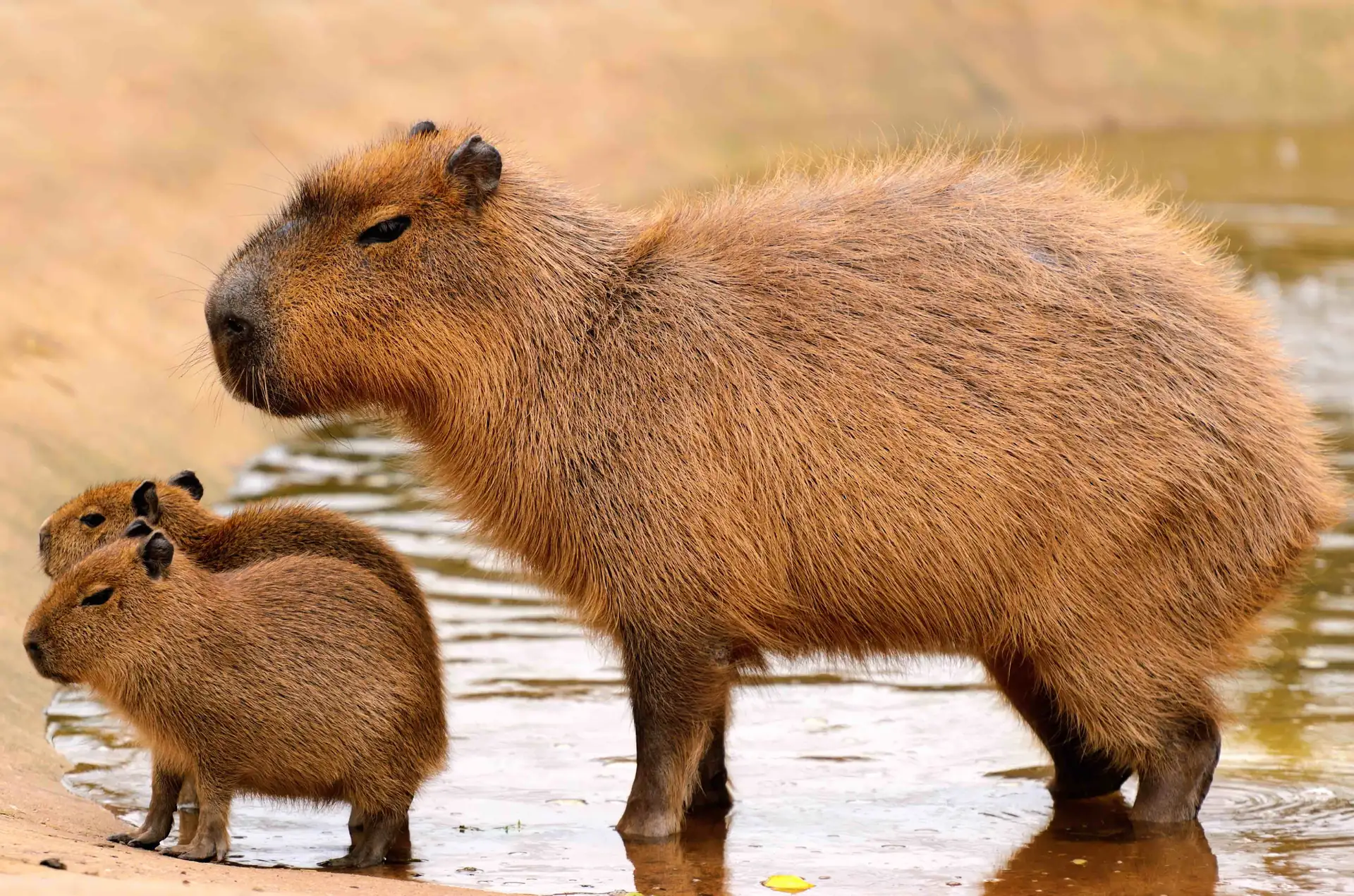
Q: Do capybaras ever drown?
A: While they’re excellent swimmers and divers, accidents can happen, especially if they’re injured or trapped.
Q: Can baby capybaras hold their breath as long as adults?
A: Not quite. Baby capybaras are still learning and developing their breath control, so they can’t stay underwater as long.
Q: How do capybaras sleep in water?
A: They’ll rest with just their noses poking out, keeping them both oxygenated and camouflaged.
Q: Do all rodents have similar abilities?
A: Nope! Capybaras are special. Most rodents aren’t nearly as aquatic or adept at holding their breath.
The Big Takeaway
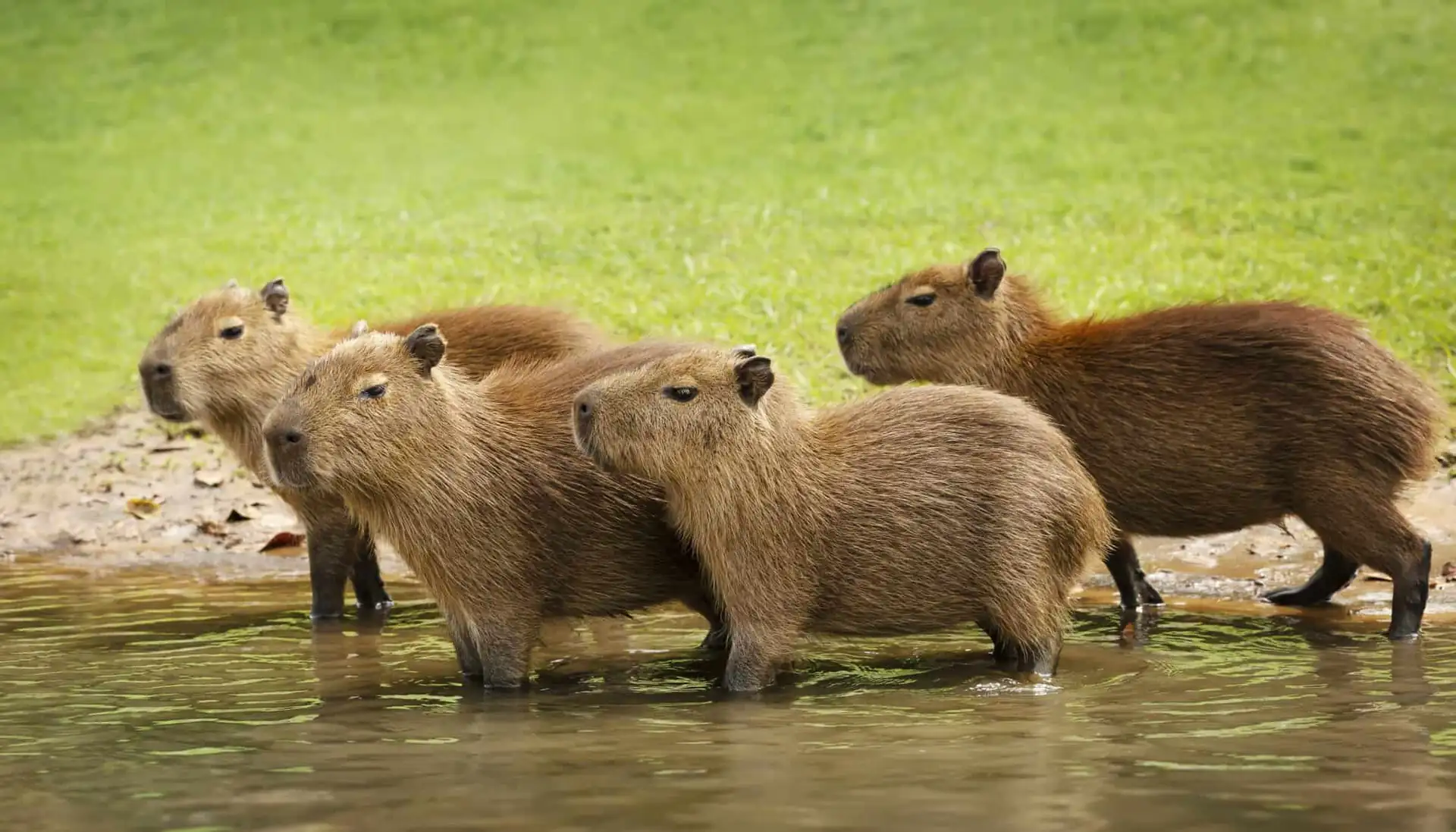
Here’s the bottom line: Capybaras are like the secret agents of the animal world. Their ability to hold their breath underwater for up to five minutes gives them a serious edge in staying alive and thriving. Whether they’re dodging predators, cooling off, or grabbing a snack, this skill is at the heart of their survival.
Next time you see one of these chill creatures lounging near water, remember—they’re not just cute. They’re masters of their aquatic domain.
Did this answer all your burning questions about capybaras and their underwater skills? If you’re as fascinated by these incredible animals as I am, share this article and spread the word about why capybaras are the coolest semi-aquatic creatures around!
